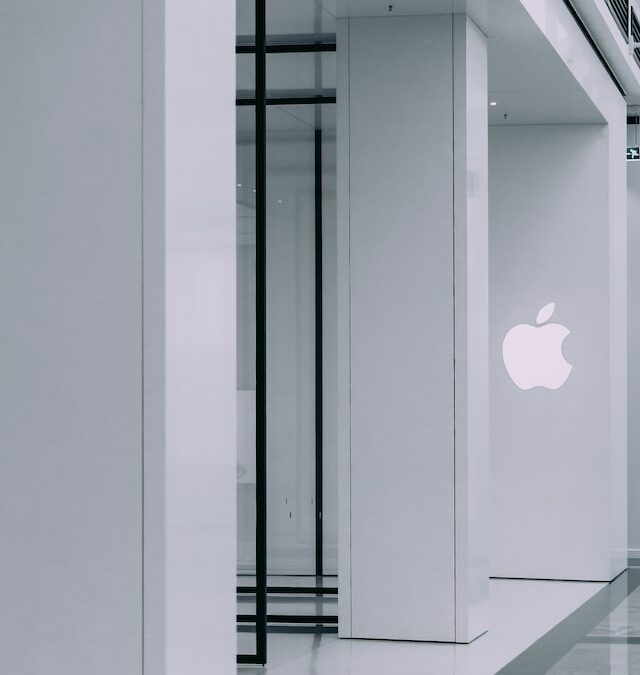
Landmark Environmental Judgments and their Impact on Industries
January 19, 2023
Commercial Awareness Update – W/C 23rd January 2023
January 23, 2023Article by Timothy Chan
Despite being the only company ever to reach $3 trillion in market value, Apple’s market value fell below $2 trillion in early trading in 2023, a $1 trillion off its market capitalisation. This slump reflects a wider trend in the tech industry, as disruptions to China-based factories due to Covid-19 demonstrate investor fears. Luckily, compared to the tech-heavy Nasdaq Composite that accounted for a 33 per cent loss of value in the past 12 months, Apple has performed slightly better—just a 27 per cent loss.
Apple’s strategy – diversifying its supply chain
Apple has begun shifting some of its production lines to China’s neighbouring country and rival India and is currently rumoured to open its first flagship stores there. With posts for over 12 different job functions, this implies that hundreds of jobs are opening, as a typical Apple Store has roughly 100 employees, and flagship locations can have up to 1000 workers.
This approach makes commercial sense, as 200 million smartphones were made in India in 2022, a ten-fold increase compared to 2014. However, protectionist rules in India require that foreign companies selling goods directly to consumers must source 30 per cent of components locally. Yet, these rules have been relaxed in recent years, and Apple’s new production lines in India have allowed it to avoid 22 per cent of tariffs. Additionally, despite Apple’s market share in India hovering at roughly 5 per cent, it is growing quickly and leads the premium segment with two-fifths of all sales. The company’s actual business has performed remarkably well amid three years of a global pandemic—it has reportedly achieved 14 consecutive quarters of growth and nearly $100 billion in net profit in the 12 months to September 2022. Since the pandemic, the number of iPhones sold in India has almost doubled.
Not only has Apple planned to diversify its assembly chains in India, but its Chinese display maker BOE Technology Group Co Ltd is planning to invest a substantial sum, projected up to $400 million, to build two factories in Vietnam. Heavily exposed not only to Covid restrictions but also to Apple’s Taiwanese device assembler Foxconn and the geopolitical tension between Beijing and Washington, Northern Vietnam has attracted investment from electronics giants, including flagship goods from Apple and Samsung in recent years.
Furthermore, with the ambition of controlling all customer experience, from ‘silicon to storefront’, Apple is also making long-term plans to replace its Wifi and Bluetooth chip, which is currently sourced from Broadcom Inc. This falls in line with its strategy to develop its own chips in recent years for its Mac computers, replacing those from Intel Corp. Apple is currently Broadcom’s largest customer, accounting for roughly 20% of its revenue. If successful, this decision to replace Broadcom’s chips will lead to Broadcom’s loss of roughly $1 to $1.5 billion in revenue.
Potential issues and wider implications
However, Apple’s plan is not without potential obstacles. For instance, according to Counterpoint Research analysts, it will take Apple years to diversify away from China. The sheer number of workers Apple hires in China is a staggering 200,000 staff at only its Zhengzhou factory, which can be a potential bargaining chip with the Chinese government. Additionally, it is likely that only lower-end models will be manufactured in other countries, whereas the more popular high-end models will still be assembled in China. Furthermore, Broadcom’s radio frequency chips are complex to design and manufacture and are unlikely to be replaced in the short term. The issue of profitability arises, as lots of potential costs into R&D are probably inevitable to achieve Apple’s long-term ambitions of owning and controlling the primary technologies in its products, only outsourcing labour-intensive processes of assembling to other companies and countries.
Moreover, Apple has faced pressure recently over claims that staff were restricted from discussing workplace harassment. Following pressure from shareholders and activists, Apple has agreed to drop all employee gagging clauses, such as concealment clauses from employee contracts, that bar a person’s ability to speak about conduct related to discrimination and abuse, both for full-time employees and contract workers. This commitment is further extended to US workers and international workers. However, how this shall be implemented remains to be seen, particularly in countries such as China, since democracy and freedom of speech are not enshrined in these countries’ political philosophies. Failure to adequately deliver these commitments could lead to potential backlash from activists, as reports of violence recently at Foxconn’s Zhengzhou plant have demonstrated.
Finally, the move to diversify chains to various geopolitical areas also leads to tax and real estate complications. Potential variations in tariffs, and even protectionist rules such as ones in India, despite relaxing in recent years, could prove problematic if it demands long-term binding commitments, particularly in Apple’s current trial and error period for diversifying supply chains. The need to open factories and retail stores on a massive scale also demands attention, as real estate is not a very liquid asset. The fact that Apple has chosen to locate many of its manufacturing bases in developing countries and economies, despite the lucrative benefits of cheaper labour costs, also means that these countries are more sensitive to political and economic fluctuations. In the coming years, we shall see how Apple, and to an extent, the wider big-tech industry, could be facing these problems and adjusting their tactics accordingly.
Sources
https://www.ft.com/content/3a3a0343-8d47-4cf9-bf60-13a516fc3b03
https://www.ft.com/content/8cd27d16-c996-4dc7-86af-ed6f40ff361c
https://www.ft.com/content/1297b0b8-7932-427c-accc-e4f4b63a4b55





